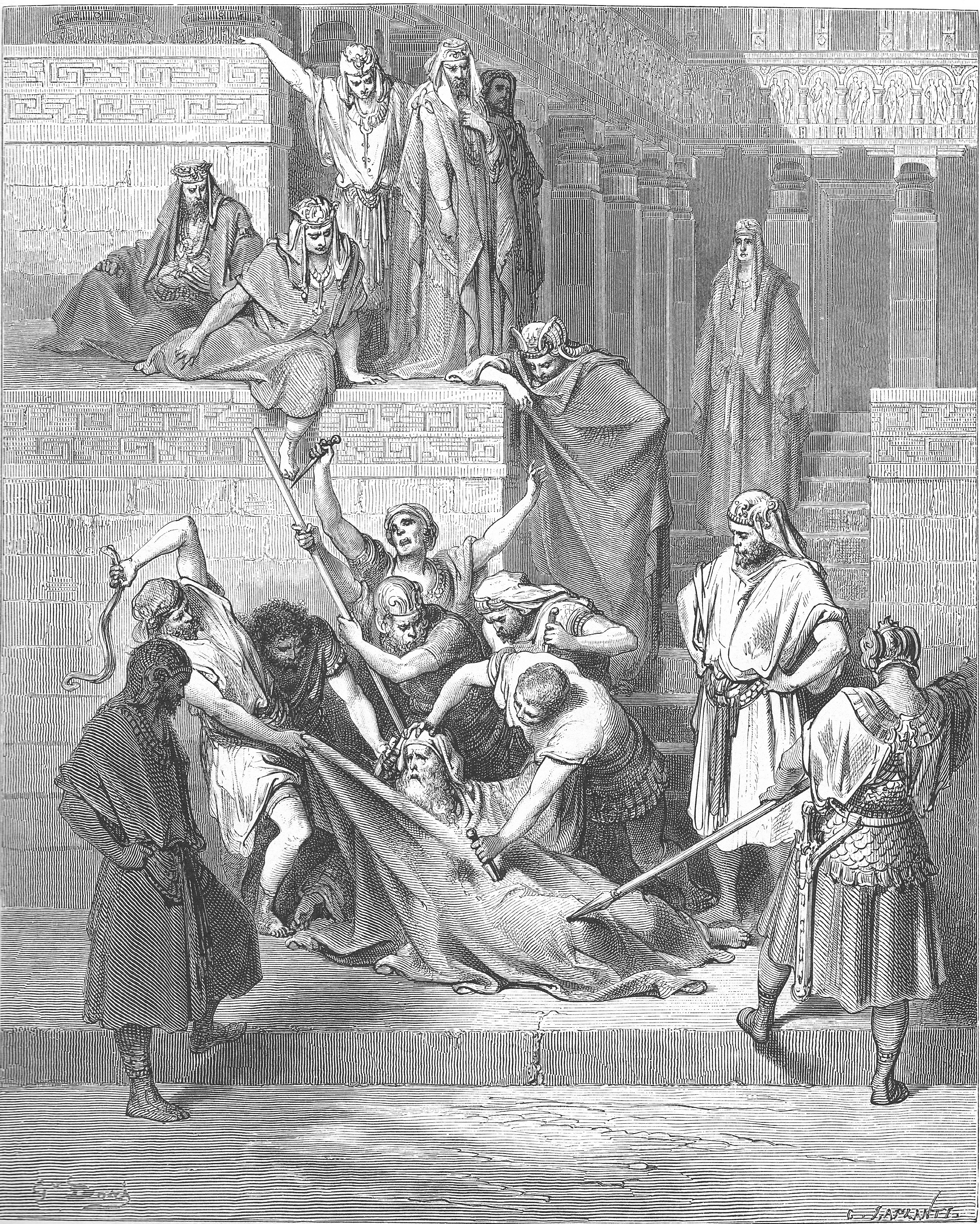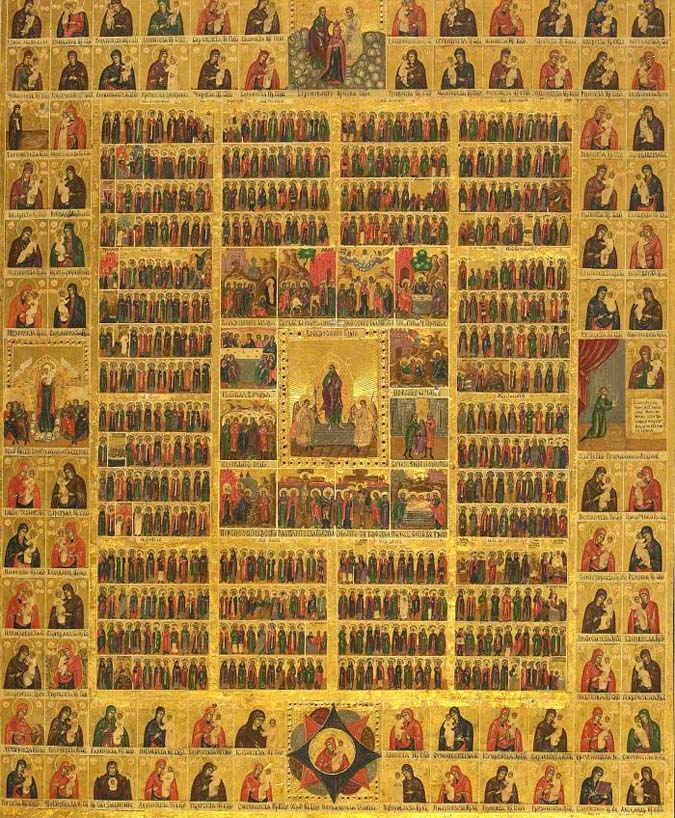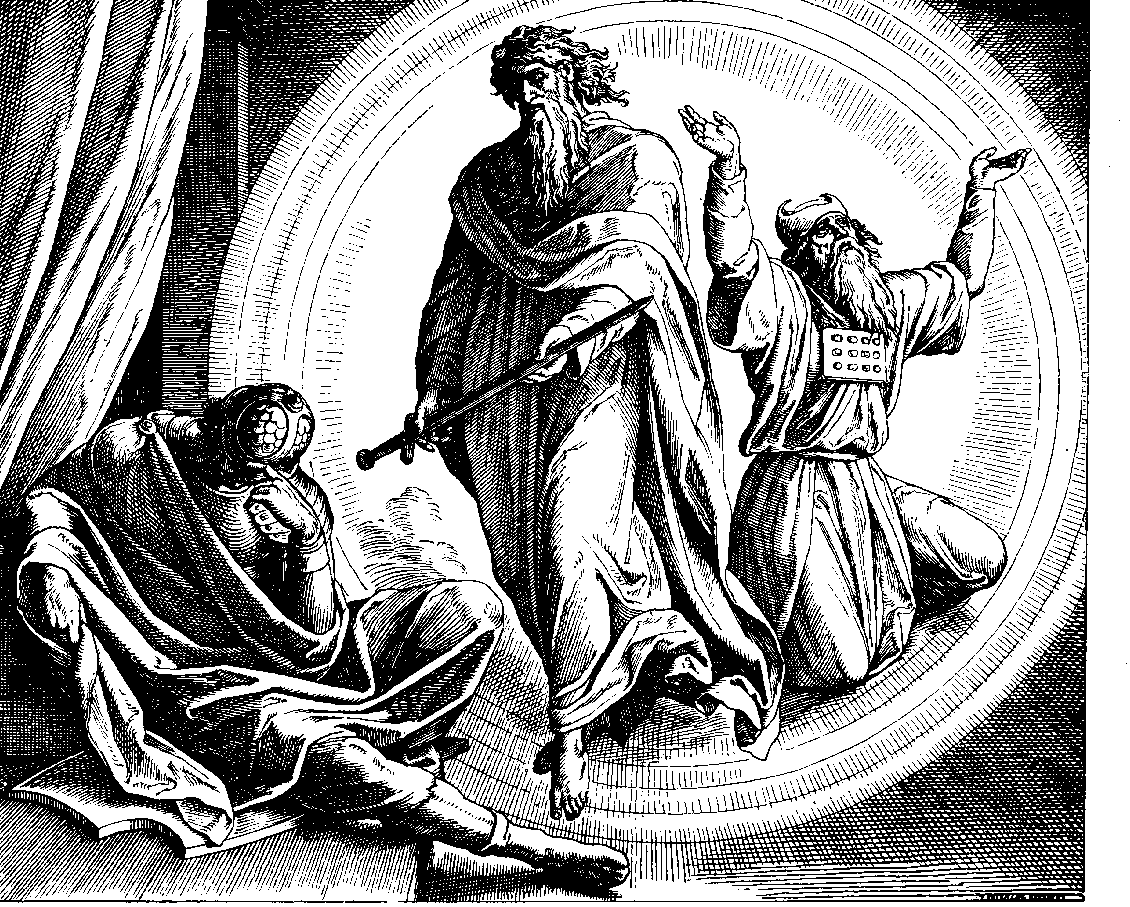|
Eleazar (2 Maccabees)
Eleazar was a Jewish man whose story is portrayed in 2 Maccabees 6:18-31. Verse 18 describes him as "one of the leading teachers of the law", and "of distinguished bearing".New English Bible According to verse 24 he was ninety at the time of his death. Under a persecution instigated by Antiochus IV Epiphanes, Eleazar was forced to open his mouth and eat pork, but he spat it out and submitted to flogging. He was then privately permitted to eat meat that he could pretend was pork, but he refused and was flogged to death. The narrator relates that in his death he left "a heroic example and a glorious memory," (verse 31). Along with the woman with seven sons depicted in the following chapter, although not actually Maccabees, they are celebrated as one of the "Holy Maccabean Martyrs" by the Roman Catholic and Eastern Orthodox churches. In the Eastern Orthodox calendar their feast day is August 1. Eleazar also appears in the book 3 Maccabees 3 Maccabees, el, Μακκαβαίων Γ´ ... [...More Info...] [...Related Items...] OR: [Wikipedia] [Google] [Baidu] |
Jewish
Jews ( he, יְהוּדִים, , ) or Jewish people are an ethnoreligious group and nation originating from the Israelites Israelite origins and kingdom: "The first act in the long drama of Jewish history is the age of the Israelites""The people of the Kingdom of Israel and the ethnic and religious group known as the Jewish people that descended from them have been subjected to a number of forced migrations in their history" and Hebrews of historical History of ancient Israel and Judah, Israel and Judah. Jewish ethnicity, nationhood, and religion are strongly interrelated, "Historically, the religious and ethnic dimensions of Jewish identity have been closely interwoven. In fact, so closely bound are they, that the traditional Jewish lexicon hardly distinguishes between the two concepts. Jewish religious practice, by definition, was observed exclusively by the Jewish people, and notions of Jewish peoplehood, nation, and community were suffused with faith in the Jewish God, ... [...More Info...] [...Related Items...] OR: [Wikipedia] [Google] [Baidu] |
Eastern Orthodox
Eastern Orthodoxy, also known as Eastern Orthodox Christianity, is one of the three main branches of Chalcedonian Christianity, alongside Catholicism and Protestantism. Like the Pentarchy of the first millennium, the mainstream (or "canonical") Eastern Orthodox Church is organised into autocephalous churches independent from each other. In the 21st century, the number of mainstream autocephalous churches is seventeen; there also exist autocephalous churches unrecognized by those mainstream ones. Autocephalous churches choose their own primate. Autocephalous churches can have jurisdiction (authority) over other churches, some of which have the status of "autonomous" which means they have more autonomy than simple eparchies. Many of these jurisdictions correspond to the territories of one or more modern states; the Patriarchate of Moscow, for example, corresponds to Russia and some of the other post-Soviet states. They can also include metropolises, bishoprics, parishes, monas ... [...More Info...] [...Related Items...] OR: [Wikipedia] [Google] [Baidu] |
People In The Deuterocanonical Books
A person ( : people) is a being that has certain capacities or attributes such as reason, morality, consciousness or self-consciousness, and being a part of a culturally established form of social relations such as kinship, ownership of property, or legal responsibility. The defining features of personhood and, consequently, what makes a person count as a person, differ widely among cultures and contexts. In addition to the question of personhood, of what makes a being count as a person to begin with, there are further questions about personal identity and self: both about what makes any particular person that particular person instead of another, and about what makes a person at one time the same person as they were or will be at another time despite any intervening changes. The plural form "people" is often used to refer to an entire nation or ethnic group (as in "a people"), and this was the original meaning of the word; it subsequently acquired its use as a plural form of per ... [...More Info...] [...Related Items...] OR: [Wikipedia] [Google] [Baidu] |
A Practical Commentary On Holy Scripture/LXXXIII
A, or a, is the first letter and the first vowel of the Latin alphabet, used in the modern English alphabet, the alphabets of other western European languages and others worldwide. Its name in English is ''a'' (pronounced ), plural ''aes''. It is similar in shape to the Ancient Greek letter alpha, from which it derives. The uppercase version consists of the two slanting sides of a triangle, crossed in the middle by a horizontal bar. The lowercase version can be written in two forms: the double-storey a and single-storey ɑ. The latter is commonly used in handwriting and fonts based on it, especially fonts intended to be read by children, and is also found in italic type. In English grammar, " a", and its variant " an", are indefinite articles. History The earliest certain ancestor of "A" is aleph (also written 'aleph), the first letter of the Phoenician alphabet, which consisted entirely of consonants (for that reason, it is also called an abjad to distinguish it fro ... [...More Info...] [...Related Items...] OR: [Wikipedia] [Google] [Baidu] |
3 Maccabees
3 Maccabees, el, Μακκαβαίων Γ´, translit=Makkabaíōn 3 also called the Third Book of Maccabees, is a book written in Koine Greek, likely in the 1st century BC in Roman Egypt. Despite the title, the book has nothing to do with the Maccabean Revolt against the Seleucid Empire described in 1 Maccabees and 2 Maccabees. Instead it tells the story of persecution of the Jews under Pharaoh Ptolemy IV Philopator (222–205 BC) in Ptolemaic Egypt, some decades before the Maccabee uprising in Judea. The story purports to explain the origin of a Purim-like festival celebrated in Egypt. 3 Maccabees is somewhat similar to the Book of Esther, another book which describes how a king is advised to annihilate the Diaspora Jews in his territory, yet is thwarted by God. In 3 Maccabees, King Ptolemy IV Philopator attempts to enter the Second Temple in Jerusalem, but is rebuffed by divine power. He grows to hate Jews, and orders the Jews of Egypt assembled in his hippodrome to be e ... [...More Info...] [...Related Items...] OR: [Wikipedia] [Google] [Baidu] |
August 1 (Eastern Orthodox Liturgics)
July 31 - Eastern Orthodox liturgical calendar - Aug. 2 All fixed commemorations below are observed on ''August 14'' by Eastern Orthodox Churches on the Old Calendar. For August 1st, Orthodox Churches on the Old Calendar commemorate the Saints listed on ''July 19''. Feasts * '' Procession of the Precious Wood of the Life-giving Cross of Jesus Christ''. * The Feast to the All-Merciful Saviour and the Most Holy Mother of God (''especially in churches dedicated to Christ'').The Autonomous Orthodox Metropolia of Western Europe and the Americas (ROCOR). ''St. Hilarion Calendar of Saints for the year of our Lord 2004.'' St. Hilarion Press (Austin, TX). p.56. * Beginning of the Dormition Fast. Saints * Holy Seven Maccabees: ** Martyrs: Abimus, Antoninus, Gurias, Eleazar, Eusabonus, Alimus, Marcellus, their mother Solomonia, and their teacher Eleazar (166 BC) * Holy Nine Martyrs of Perge in Pamphylia: ** Leontius, Attius, Alexander, Cindeus, Minsitheus, Cyriacus, Mineon, Catanus, ... [...More Info...] [...Related Items...] OR: [Wikipedia] [Google] [Baidu] |
Eastern Orthodox Liturgical Calendar
The Eastern Orthodox liturgical calendar describes and dictates the rhythm of the life of the Eastern Orthodox Church. Passages of Holy Scripture, saints and events for commemoration are associated with each date, as are many times special rules for fasting or feasting that correspond to the day of the week or time of year in relationship to the major feast days. There are two types of feasts in the Orthodox Church calendar: fixed and movable. ''Fixed feasts'' occur on the same calendar day every year, whereas ''movable feasts'' change each year. The moveable feasts are generally relative to Pascha (Easter), and so the cycle of moveable feasts is referred to as the Paschal cycle. Fixed feasts The following list of dates links only to fixed feasts of the Orthodox Church. These are the fixed ''dates''; the particular ''day'' on which that date is observed differs depending upon whether one follows the Julian Calendar (sometimes referred to as the "Old Calendar") or the Revise ... [...More Info...] [...Related Items...] OR: [Wikipedia] [Google] [Baidu] |
Roman Catholic
Roman or Romans most often refers to: *Rome, the capital city of Italy *Ancient Rome, Roman civilization from 8th century BC to 5th century AD *Roman people, the people of ancient Rome *'' Epistle to the Romans'', shortened to ''Romans'', a letter in the New Testament of the Christian Bible Roman or Romans may also refer to: Arts and entertainment Music * Romans (band), a Japanese pop group * ''Roman'' (album), by Sound Horizon, 2006 * ''Roman'' (EP), by Teen Top, 2011 *" Roman (My Dear Boy)", a 2004 single by Morning Musume Film and television * Film Roman, an American animation studio * ''Roman'' (film), a 2006 American suspense-horror film * ''Romans'' (2013 film), an Indian Malayalam comedy film * ''Romans'' (2017 film), a British drama film * ''The Romans'' (''Doctor Who''), a serial in British TV series People *Roman (given name), a given name, including a list of people and fictional characters *Roman (surname), including a list of people named Roman or Romans *Ῥωμ� ... [...More Info...] [...Related Items...] OR: [Wikipedia] [Google] [Baidu] |
2 Maccabees
2 Maccabees, el, Μακκαβαίων Β´, translit=Makkabaíōn 2 also known as the Second Book of Maccabees, Second Maccabees, and abbreviated as 2 Macc., is a deuterocanonical book which recounts the persecution of Jews under King Antiochus IV Epiphanes and the Maccabean Revolt against him. It concludes with the defeat of the Seleucid Empire general Nicanor in 161 BC by Judas Maccabeus, the leader of the Maccabees. 2 Maccabees was originally written in Koine Greek by an unknown diaspora Jew living in Hellenistic Egypt. It was likely written some time between 150 and 120 BC. Together with the book 1 Maccabees, it is one of the most important sources on the Maccabean Revolt. The work is not a sequel to 1 Maccabees but rather its own independent rendition of the historical events of the Maccabean Revolt. It both starts and ends its history earlier than 1 Maccabees, starting with an incident with the Seleucid official Heliodorus attempting to tax the Second Temple in 178 B ... [...More Info...] [...Related Items...] OR: [Wikipedia] [Google] [Baidu] |
Maccabee
The Maccabees (), also spelled Machabees ( he, מַכַּבִּים, or , ; la, Machabaei or ; grc, Μακκαβαῖοι, ), were a group of Jewish rebel warriors who took control of Judea, which at the time was part of the Seleucid Empire. They founded the Hasmonean dynasty, which ruled from 167 BCE to 37 BCE, being a fully independent kingdom from about 110 to 63 BCE. They reasserted the Jewish religion, partly by forced conversion, expanded the boundaries of Judea by conquest and reduced the influence of Hellenism and Hellenistic Judaism. Etymology The name Maccabee is often used as a synonym for the entire Hasmonean dynasty, but the Maccabees proper were Judas Maccabeus and his four brothers. The name Maccabee was a personal epithet of Judah, and the later generations were not his direct descendants. One explanation of the name's origins is that it derives from the Aramaic ''maqqəḇa'', "the hammer", in recognition of Judah's ferocity in battle. The traditio ... [...More Info...] [...Related Items...] OR: [Wikipedia] [Google] [Baidu] |
Woman With Seven Sons
The woman with seven sons was a Jewish martyr described in 2 Maccabees 7 and other sources, who had seven sons that were arrested (along with her) by Antiochus IV Epiphanes, who forced them to prove their respect to him by consuming pig meat. When they refused, he tortured and killed the sons one by one in front of the unflinching and stout-hearted mother. The story likely occurred around the beginning of the religious persecutions in 167-166 BCE. Although unnamed in 2 Maccabees, the mother is known variously as Hannah, Miriam, Solomonia, and Shmouni. Narrative 2 Maccabees Shortly before the revolt of Judas Maccabeus (2 Maccabees 8), Antiochus IV Epiphanes arrested a mother and her seven sons, and tried to force them to eat pork. One of the brothers said, on behalf of everyone, that even if they were all to die, they would not break the law. The angry king ordered to heat up the pans and cauldrons, and he ordered the first brother to have his tongue cut off, the skin to be rem ... [...More Info...] [...Related Items...] OR: [Wikipedia] [Google] [Baidu] |

_1938.jpg)


